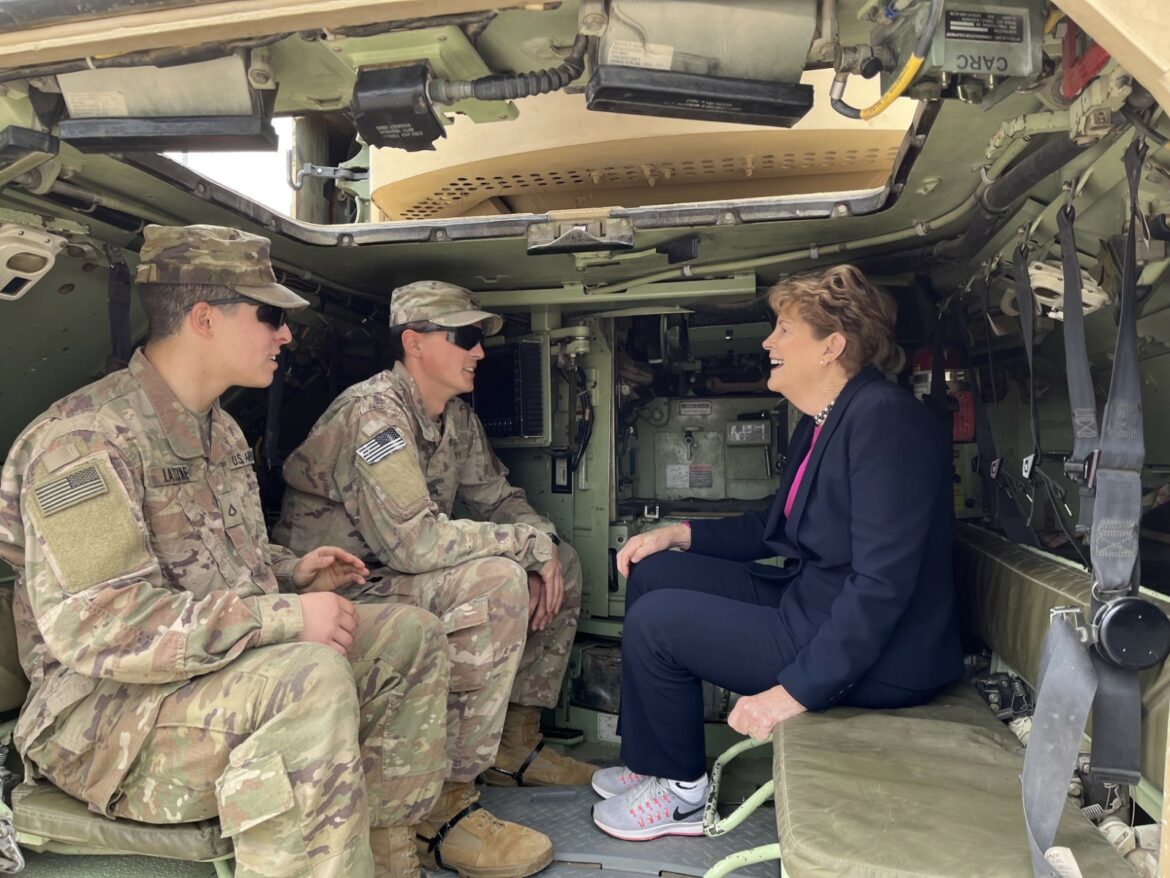(Washington, DC) – U.S. Senators Jeanne Shaheen (D-NH) and Thom Tillis (R-NC), co-chairs of the Senate NATO Observer Group, concluded a bipartisan congressional delegation to the 2023 NATO Summit in Vilnius, Lithuania.
Joining Shaheen and Tillis were Senate Majority Whip Dick Durbin (D-IL), Ranking Member of the Senate Foreign Relations Subcommittee on Europe and Regional Security Cooperation Pete Ricketts (R-NE) and U.S. Senators Angus King (I-ME) and Dan Sullivan (R-AK).
“This year’s Summit came at one of the most consequential times in NATO history, and I’m proud to say that the Alliance rose to meet our collective challenges head-on, displaying the strength and unity we have championed for so long,” said Senator Shaheen. “As transatlantic security faces tests it hasn’t seen since the end of the Cold War, I leave Vilnius with renewed optimism that the Alliance will continue to stand together against those who seek to upend global stability – from Russia’s unprovoked invasion of Ukraine to the pacing challenge posed by the People’s Republic of China. My colleagues and I will continue to push for long-term investments in our collective defense, and I am thankful to Senator Tillis for his partnership in bringing this group together, and to Senators Durbin, Ricketts, King and Sullivan for taking part in this important trip.”
“The 2023 NATO Summit was an important opportunity to reaffirm the United States’ commitment to the NATO Alliance as we face continued aggression from Russia in Ukraine, provocation from China, and other rising threats,” said Senator Tillis. “After many successful meetings, it is clear that Russia’s aggression has unified our allies and partners against the threat to democracy, and as co-chair of the Senate NATO Observer Group, I was proud to work with Senator Shaheen and my colleagues to show the Senate’s commitment to that effort. With Sweden’s imminent accession to NATO after this meeting, the Alliance will only continue to grow more unified, and it is more important than ever that the partner nations commit to reaching the two percent goals with the United States so we can continue to bolster and strengthen the Alliance.”
“The NATO alliance is stronger now more than ever, and it was apparent at this year’s summit,” said Senator Durbin. “Over the last few days, there has been an overwhelming sense of unity and defense of common values found among our NATO allies in the face of Russian aggression. I believe Ukraine’s future is in the European Union and the NATO alliance. And until the day that Ukraine can join NATO, the U.S. and other key allies must help Ukraine with security guarantees—as we do with other key, non-NATO allies. This year’s summit strengthened our transatlantic alliance and by having two new members—Finland and I hope without further delay, Sweden—we only continue to reaffirm our commitment to democratic values.”
“A strong and effective NATO is more critical to global stability than ever before. Our adversaries are intent on displacing America’s leadership in the world. They’re attempting to disrupt the rules-based system that we set up, which has kept the peace for nearly 80 years,” said Senator Ricketts. “Our NATO allies must step up to meet their 2% GDP commitments for defense spending. We must also collectively and cohesively prioritize efforts to combat the growing threat of the Chinese Communist Party.”
“The thing that has come through to me at this summit is the four Ps,” said Senator King. “A plan, a vision. NATO has articulated new plans, regional plans that are executable, that are important, that are responsive to the challenges of the 21st century. The second P is partnership. And of course, that’s what NATO is all about. Nothing in this world can be accomplished without partnership. The third P is perseverance. It’s not easy. Perseverance is absolutely critical. And the final P is passion. And what I’ve seen here over the last two days is people with a true passion for democracy, for human rights, and for peace.”
“The 74-year-old NATO alliance is the most effective alliance in history,” said Senator Sullivan. “As we enter a new era of authoritarian aggression led by dictators in Russia and China—all NATO members, including the United States, must leverage our strengths to meet this moment. We need the NATO alliance to be sustainable for another 75 years—that is why we all traveled to Vilnius. I was pleased to see the issue of meeting defense 2 percent of GDP spending commitments, an issue I raised in all of our meetings, be included in the communique. It is critically important that all NATO members meet this commitment to make sure this unique alliance remains viable and strong for decades to come. I hope our allies take their commitment seriously.”
In Vilnius, the Senators reaffirmed the United States’ strong bipartisan support in the Senate for Ukraine and their path to NATO membership, the transatlantic Alliance and the announcement that Sweden will formally join as the 32nd member of NATO. The Senators also addressed a number of shared security challenges facing the Alliance, including important topics such as burden sharing.
Shaheen participated in the NATO Public Forum, as well as numerous bilateral meetings with senior U.S. officials and allied and partner nations. The delegation met with Swedish Prime Minister Ulf Kristersson following Türkiye’s decision to back Sweden’s bid for NATO membership. In addition, the group sat down with Belarusian pro-democracy leader Sviatlana Tsikhanouskaya, where Senator Shaheen reaffirmed the U.S.’s commitment to bolstering the pro-democracy movement in Belarus. The delegation also stopped at the Pabrad? Training Area, where they visited members of the rotational U.S. Army battalion stationed at the camp.





